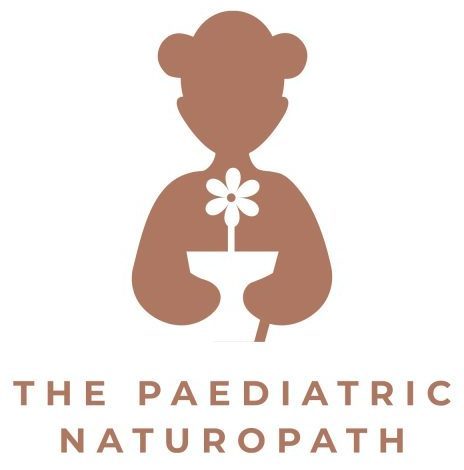What is precocious puberty?
In recent years, more girls are experiencing puberty at a younger age, a phenomenon known as early puberty or “precocious puberty.” This early onset can be concerning for both parents and children, raising questions about physical and emotional health. Understanding the factors that contribute to early puberty and knowing how to support your daughter naturally can help ease this transition. In this blog, we’ll explore the signs, potential causes, and natural ways to support your child during this crucial phase of development.
Early puberty is when a child’s body begins to change into an adult body too soon—before the age of 8 in girls. Puberty brings about significant physical changes, such as breast development, pubic hair growth, and menstruation, which are typically expected between the ages of 8 and 13.
Signs of Early Puberty in Girls:
- Breast development before age 8
- Growth of pubic or underarm hair
- Rapid growth spurts
- Acne or oily skin
- Body odour similar to that of a teenager
- Onset of menstruation (periods) before age 10
What Causes Early Puberty?
The exact cause of early puberty isn’t always clear, but various factors can contribute to this early development. These include:
- Hormonal Imbalances: Some cases of early puberty are linked to issues with the hypothalamus, pituitary gland, or ovaries, which regulate hormone levels.
- Environmental Exposure to Endocrine Disruptors: Chemicals found in plastics (like BPA), pesticides, and certain personal care products can mimic oestrogen in the body, triggering early development. We find that young girls with high levels of heavy metals on HTMA can experience early puberty.
- Nutrition and Obesity: Research shows a connection between higher body fat levels and the early onset of puberty. Excessive consumption of processed foods, sugar, and artificial additives may play a role.
- Genetics: Girls whose mothers experienced early puberty are more likely to follow a similar pattern.
- Stress and Trauma: High levels of stress, trauma, or family disruptions can sometimes accelerate physical development.
How Early Puberty Can Impact Emotional Health:
Beyond the physical changes, early puberty can affect a child’s mental and emotional wellbeing. Girls who develop earlier than their peers may face body image issues, self-esteem problems, and social isolation. They may also be at a higher risk for anxiety, depression, and behavioural problems.
Natural Ways to Support Your Child Through Early Puberty:
- Promote a Healthy Diet: Nutrition plays a key role in managing hormonal health. Focus on:
- Whole Foods: Encourage a diet rich in fruits, vegetables, whole grains, and lean proteins.
- Phytoestrogens: Foods like flaxseeds, lentils, and soy may help balance oestrogen levels naturally.
- Avoiding Processed Foods and Sugary Beverages: Processed foods and excess sugar can disrupt hormone balance and contribute to weight gain.
- Limit Exposure to Endocrine Disruptors: Reducing exposure to environmental chemicals can help. Consider:
- Switching to Organic Foods: This can limit pesticide exposure.
- Using Glass Containers for Food Storage: Avoid heating food in plastic, as chemicals like BPA can leach into food.
- Choosing Natural Skin Care Products: Opt for paraben-free, phthalate-free, and fragrance-free products.
- Encourage Regular Physical Activity: Exercise not only helps manage weight but also supports healthy hormone balance. Aim for activities that your daughter enjoys, whether it’s swimming, dancing, or playing outside.
- Create a Supportive Emotional Environment: Girls going through early puberty may feel out of sync with their peers. Open, supportive conversations about body changes can help alleviate anxiety. Reassure your daughter that her experience is normal, even if it feels different from her friends.
- Mindful Stress Reduction Techniques: Practicing mindfulness, yoga, or relaxation techniques can help your child manage any stress or anxiety related to early puberty. These practices also help regulate the body’s stress hormones, which can impact the timing of puberty.
- Consult a Naturopath or Pediatrician: A naturopath can offer additional support, including herbal remedies, supplements, and dietary adjustments to manage early puberty symptoms. If needed, a pediatrician can rule out any underlying medical conditions.
Surprising Reasons for Early Puberty:
- Family Stress and Divorce: Studies have shown that girls who experience significant family stress—such as parental divorce, separation, or ongoing conflict—are more likely to enter puberty earlier. The theory is that chronic stress may trigger the early activation of the hypothalamic-pituitary-adrenal (HPA) axis, which regulates hormone production, leading to premature development.
- Why It Happens: The body’s stress response system, when activated over a long period, can alter hormone regulation. In situations of emotional distress or instability, the brain might signal the body to mature earlier as a survival mechanism. This phenomenon is linked to evolutionary biology, where early reproduction may have been advantageous in uncertain environments.
- Absence of a Biological Father: Research also suggests that girls raised without a biological father in the household may experience puberty at an earlier age. This may be related to both emotional stress and hormonal cues in the environment.
- Pheromone Theory: Some scientists theorise that exposure to unrelated male pheromones (e.g. from a stepfather or another male living in the household) may accelerate sexual development. This is still a debated area, but it has been noted in some studies.
- Chronic Stress or Trauma: Beyond divorce, other stressful life events, such as the death of a loved one, abuse, or financial instability, may trigger early puberty. Chronic stress leads to elevated levels of cortisol, which can disrupt normal hormone balance and push the body toward early maturation.
- Obesity and Sedentary Lifestyle: While obesity itself is a well known factor in early puberty, the emotional aspects of weight gain, like low self-esteem or social challenges, can compound stress and accelerate puberty. A sedentary lifestyle and poor nutrition are often linked to both physical and emotional factors that contribute to early development.
- Adoption or Change in Caregivers: Children who experience adoption, foster care, or multiple caregiver changes may experience earlier puberty due to the emotional stress of adjusting to new environments. These transitions can be stressful, leading to changes in the way the brain regulates hormones
If one of these stress or trauma based reasons resonates for your family, make an appointment with Kate to start to unpack this.
When to Seek Medical Advice:
While early puberty is often benign, it’s important to seek medical advice if you notice signs of puberty before age 8. A healthcare professional can evaluate whether any underlying health conditions, such as hormone imbalances or growth disorders, may be contributing to early development.
Final Thoughts:
Early puberty in girls can be a challenging time for both children and parents. However, by understanding the causes and taking a natural approach to support your child’s physical and emotional well-being, you can help make this transition smoother. A healthy diet, reduced exposure to environmental toxins, regular exercise, and emotional support are all key in ensuring your child thrives during this time of rapid growth and development.
Reach out for support from one of the team.




